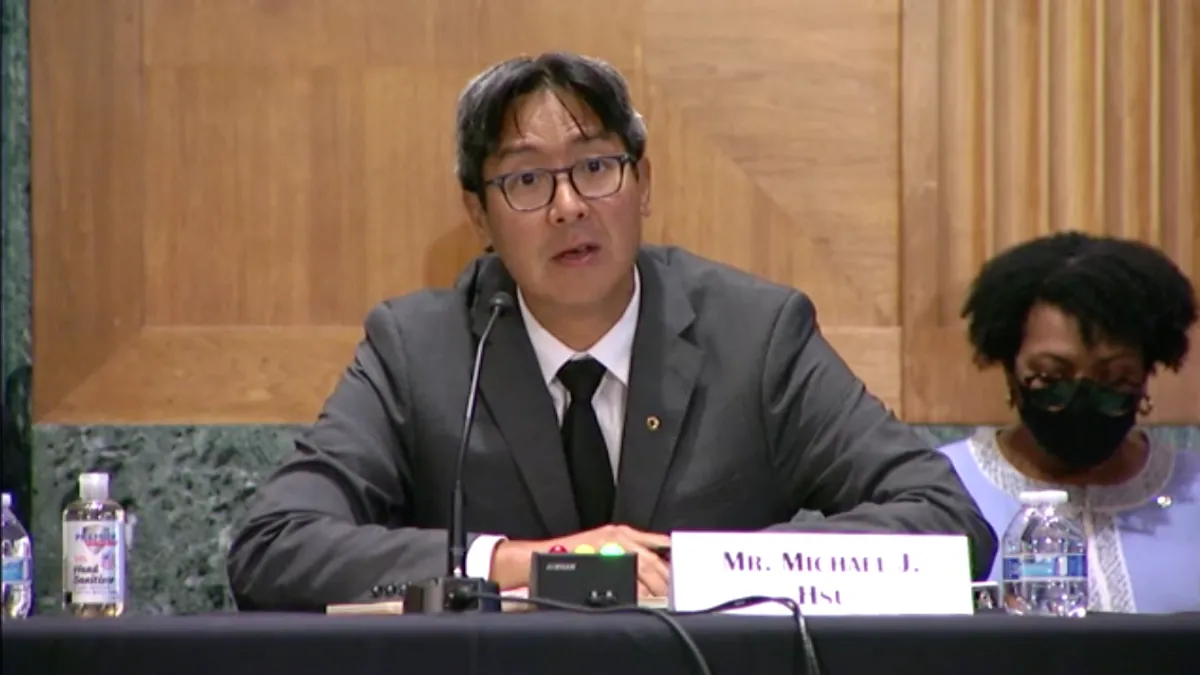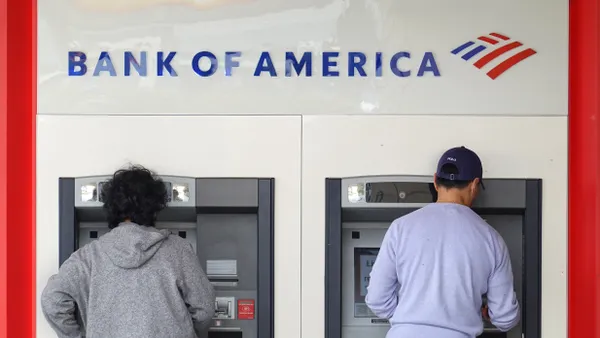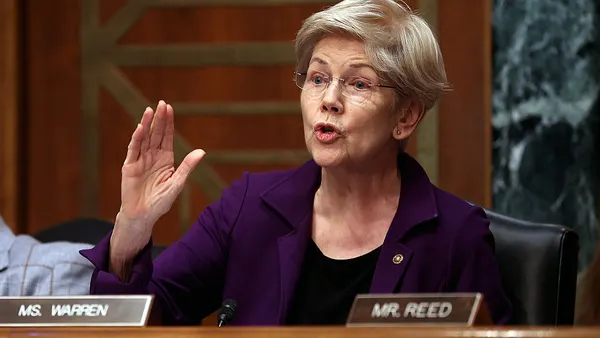The Office of the Comptroller of the Currency (OCC) is considering a three-pronged approach to safeguarding against bank failures at the nation’s largest regionals, Acting Comptroller Michael Hsu said Friday at the Wharton Conference on Financial Regulation.
Hsu recommends that large regional banks have a single-point-of-entry (SPOE) resolution strategy, that their parent companies hold enough long-term debt to absorb a total loss, and that lines of business or large portfolios within the banks be easily separable.
Some of the revamps Hsu suggests would need cooperation from the Federal Reserve and Federal Deposit Insurance Corp. (FDIC), he acknowledged. But Hsu signaled in December that he would "continue to work collaboratively with other regulators" on bank mergers, an OCC spokesperson said in response to an FDIC board fissure that seemingly shook the agency to its core.
The FDIC late last month launched a 60-day comment period on guidance surrounding bank mergers. The move had been brewing since two of the agency’s board members, Martin Gruenberg and Consumer Financial Protection Bureau (CFPB) Director Rohit Chopra, claimed the board had voted to launch such a review. Then-FDIC Chair Jelena McWilliams, a Trump appointee, disputed that assertion but later resigned. Hsu, who also serves on the FDIC board, did not sign on to Gruenberg and Chopra’s statement, but his support was implied.
The Biden administration — and regulators who identify as Democrats, in particular — have targeted bank mergers as fertile ground for reform. The White House in July issued an executive order requiring the Justice Department, the Fed, the FDIC and the OCC to update guidelines "to provide more robust scrutiny of [bank] mergers."
In comments Friday, Hsu pushed the banking sphere to look toward the longer-term effects if a large regional were to fail — not just immediate consequences, damage avoided or disruption to financial markets and counterparties.
"We should also ask: 'How might the failed bank be resolved?'" he said.
The "only viable option" today, he said, would be to sell a failing regional to a global systemically important bank (GSIB), such as JPMorgan Chase, Bank of America, Wells Fargo or Citi.
But a forced "shotgun marriage" with a GSIB would mean the acquiring bank could only perform "minimal due diligence and limited identification of integration challenges," Hsu said.
More critically, perhaps, such a move would further concentrate banking.
"Trust in the resolution process and in the government’s ability to proactively manage such situations would likely erode," he said. "We need options."
Failure by a large regional is hypothetical. But, Hsu cautioned, four regionals — U.S. Bank, PNC, Truist and the U.S. arm of Canada’s TD Bank — hold more than $500 billion in assets. By contrast, the U.S.’s largest non-GSIB institution a decade ago held $330 billion.
A purchase-and-assumption deal of a failed regional by a GSIB "would not be a terrible outcome" in the short term, Hsu said.
"Markets would continue to function. A bank run would be avoided. Contagion would be contained," he said. But such a move would make the acquiring GSIBs more systemic, Hsu asserted.
Large regionals today are not easily separable, and don’t have a minimum long-term debt requirement or the capacity for SPOE resolution, Hsu said.
"This is not their fault," he said, because regulators were focused mainly on GSIBs when the applicable rules were written in the wake of the 2007-08 financial crisis.
In a single-point-of-entry resolution, only the parent holding company would file for bankruptcy or be taken into receivership, whereas subsidiaries such as the bank itself would continue to function.
If regionals were subject to total loss absorbing capacity (TLAC) rules, private investors would take on the firm’s losses and could be "bailed in" rather than taxpayers bailing a bank out, Hsu said.
On separability, Hsu said the goal would be to get large regionals to a point where they can identify lines of business or portfolios that can be spun off quickly — "ideally over a weekend."
Regulators perhaps have appeared more intentional with regard to bank mergers in recent months. Several proposed tie-ups have lagged in review by the Fed. The central bank and the OCC held a public hearing last month on the pending combination of U.S. Bank and MUFG Union Bank.
But Hsu warned Friday that a blanket damper on mergers involving large regionals may "shield" GSIBs from competition, "potentially helping to solidify their dominance in various markets."











